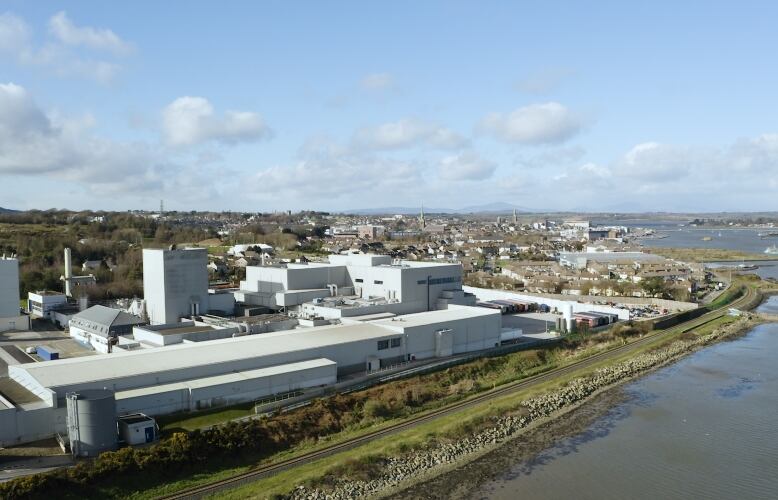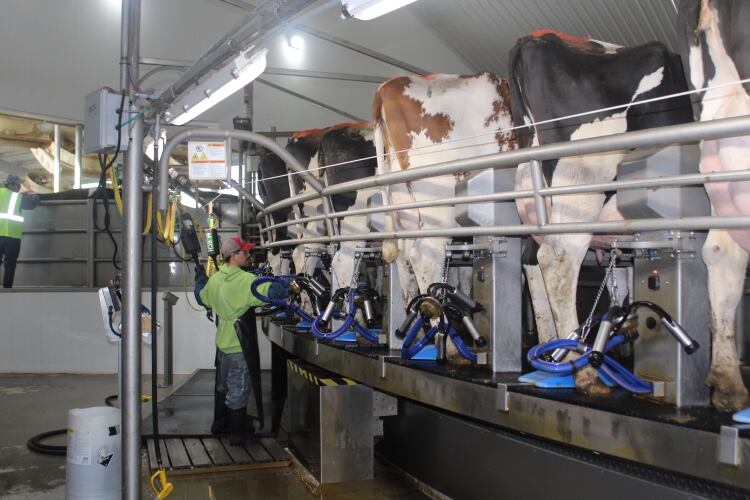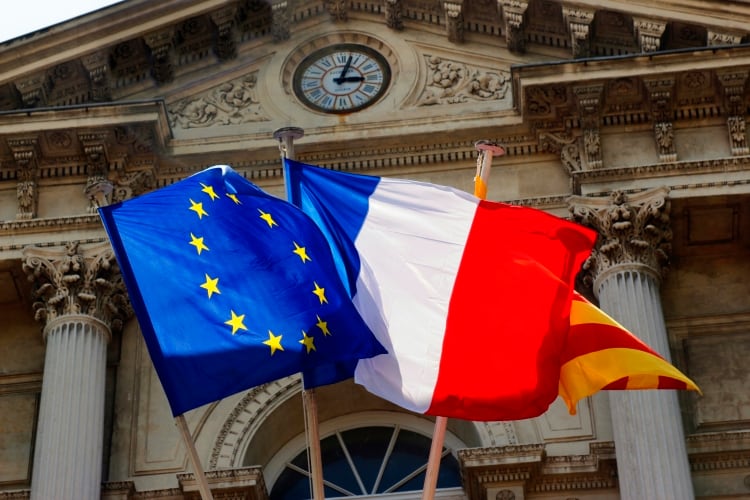The company said this is a step towards achieving the company’s goal of zero net carbon emissions by 2050.
Danone Wexford is located in one of the world’s sustainable grass-fed dairy sectors and employs 350 people. It produces brands including Aptamil, Cow & Gate and Nutrilon for consumers in 41 countries around the world.
Danone said the plant sustainably manufactures baby formula in several ways.
It is curbing carbon emissions, as the plant sources 100% renewable electricity and uses a biomass boiler powered by sustainable wood fuels. This has resulted in 10,000 tons of CO2 savings compared to the plant’s emissions in 2010, representing a 70% reduction in its direct carbon footprint, whilst doubling its production volumes since then.
Since the end of 2019, the remaining direct carbon emissions of the plant have been fully offset with Gold Standard certificates.
Danone said it is also implementing digital technologies for efficiencies and sustainability performance: the facility has developed a digital roadmap that includes initiatives to become a paperless site, using drones for monitoring inventory and innovative technologies for monitoring energy.
The company said it is supporting local economy, as the sustainable wood fuel powering the boiler is sourced from the local wood chipping industry.
Danone said it also contributes to regenerative agriculture practices in Ireland, and has achieved zero-waste to landfill. All waste from production processes or packaging materials is recovered.
Emmanuel Faber, chairman and CEO of Danone, said, “Our One Planet. One Health frame of action puts climate at the core of our growth model. The carbon neutral certification of Danone Wexford is an excellent illustration of implementing climate action to protect health of the planet and of the people.
“It is also a step towards realizing our commitment to achieving zero net carbon emissions across our entire value chain by 2050 and I truly want to congratulate our people in Wexford for realizing an ambitious vision set more than 10 years ago. This is only a first step and we should accelerate even more to create a low-emissions, climate resilient future. It is through key investments like this one that we take a step forward towards reaching this ambition.”
In 2019, Danone inaugurated a new sustainable, energy and water efficient production facility for baby formula in the Netherlands and announced an investment of NZ$40m (US$25.9m) towards achieving 100% carbon neutrality of its spray drying plant for baby formula in New Zealand.
Danone said it is also committed to reducing the climate impact of its other baby formula production site in Macroom, Ireland, which relies on natural gas for its energy needs.
In 2015, Danone committed to zero net carbon emissions across its full value-chain by 2050 and to reduce scope 1, 2 and 3 emission intensity by 50% for 2030. In September 2019, Danone joined 86 other global companies in signing the Global Compact’s Business Ambition for 1.5°C pledge. The company has also reached the peak of its full scope carbon emissions, five years ahead of its original plan and commitment and one year prior to the 1.5°C Science-Based Targets commitment.
The company also announced a €2bn ($2.3bn) climate acceleration plan to fund the transformation of its agriculture, energy and operations, packaging and digital capabilities between 2020 and 2022.



